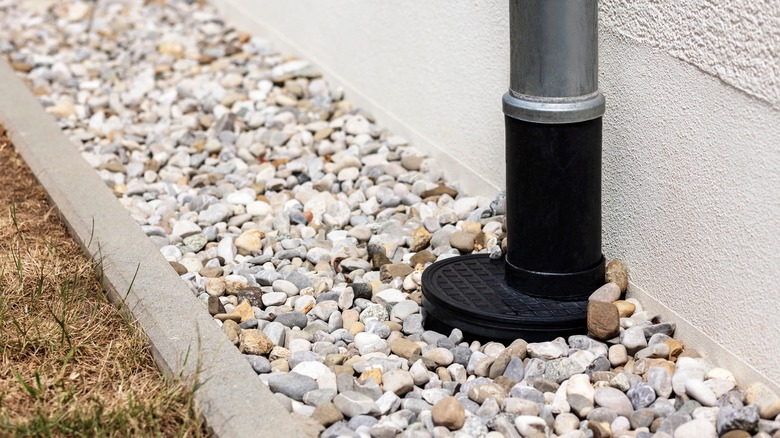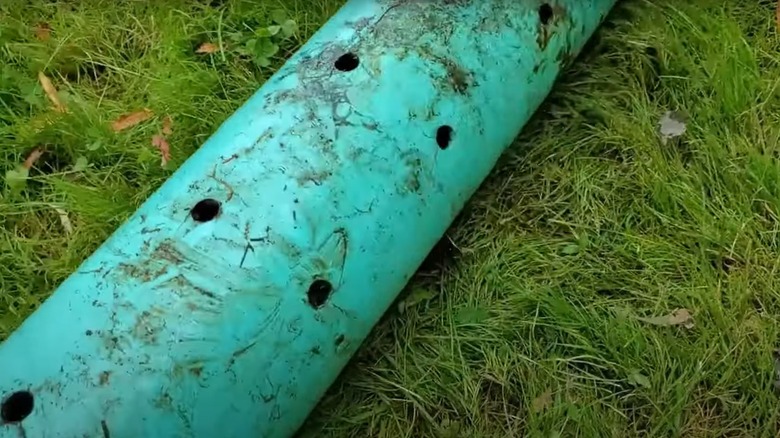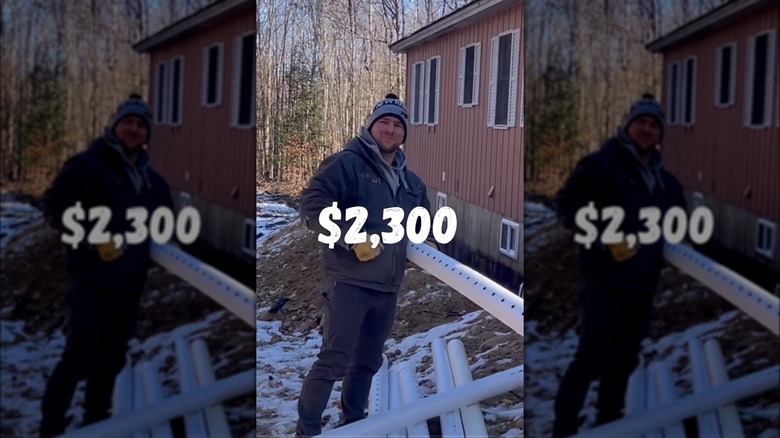How Much Does It Cost To DIY Install A French Drain?
We may receive a commission on purchases made from links.
If you have water draining issues around your property, you may be interested in learning about a French drain, and whether you need one to help with your problem. This system passively collects excess surface and groundwater and moves it to another area, protecting your home's foundation from potential damage. Installing a French drain is also one potential solution to fix a muddy lawn by diverting some of the water that collects in this area to another spot.
When you begin researching French drains, you may find that it's quite expensive to hire a landscaping company or a plumber to install one for you. The average cost is almost $10,000 for this type of work. Much of the cost relates to labor, which averages about $75 per hour per person, and most companies will have at least two people working on the project.
Consequently, you may want to attempt to do the work yourself, meaning you'll only have to pay for materials. WINNI on TikTok put together a video that shows the process of installing the materials for a French drain along the foundation of a dwelling that also helps to move water the sump pump collects in the basement. This TikTok video estimates a cost of $2,300 for the materials, which include PVC plastic pipe, PVC cement, a collection basin, gravel, and filter fabric. The video assumes you have the tools required for the job, like a shovel and a level.
How do you estimate the cost to install a French drain as a DIY project?
You can estimate the cost of materials based on the distance over which your project will go. A typical French drain design will need between 100 and 200 linear feet, but the actual distance depends on your property and on the location of the layout. A French drain installation in the middle of the yard or in a crawl space inside your home will cost about one-half to one-third as much as one that you are installing around the exterior of the foundation.
The perforated drainage pipe required to build a French drain costs anywhere from 50 cents to $3 per linear foot. At Home Depot, you'll pay roughly $20 for a 10-foot perforated drain pipe that has a 4-inch diameter. Filter fabric costs about $81 for a 300-foot roll that's 3 feet in width at Home Depot, which is roughly 27 cents per linear foot.
Drainage gravel costs anywhere from $500 to $1,000 for this project, but the cost depends on the size and depth of your trench. The typical trench is up to 12 inches in width and 18 inches in depth, which means the typical trench is 1.75 cubic feet per linear foot. (You may need a wider or deeper trench.) Home Depot offers a 0.4 cubic feet bag of gravel for $35, so you may want to order it by the truckload to save money.
Can you actually do the work yourself to install a French drain?
Creating a French drain as a DIY job is going to be hard work with a lot of manual labor. You must decide if you can handle such physical work. WINNI's TikTok video shows the process of creating the French drain, which involves digging a trench by hand when you're up against the foundation. If you are placing the trench in the yard, you may be able to rent a trenching machine to help with the digging. Renting a trenching machine costs $100 to $200 per day, but you'll still have to do some digging and moving of dirt by hand.
Once you dig the trench, you'll need to be able to walk around inside the hole and be able to climb in and out of it. You then must be able to fill a wheelbarrow or bucket with gravel and move the wheelbarrow back and forth from the pile of gravel to the trench. Uneven ground around a trench obviously makes it tougher to move a loaded wheelbarrow.
As shown in a second WINNI TikTok video where the process is explained in more detail, you have to be able to move the gravel around inside the trench to cover the pipe and to make it level, which can take quite a bit of effort. You'll then have to refill the trench with dirt and tamp it down, which involves a lot of physical effort, too. So, installing your own French drain is doable, but very labor-intensive.


